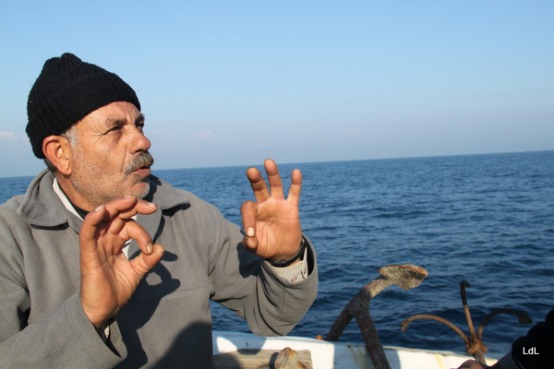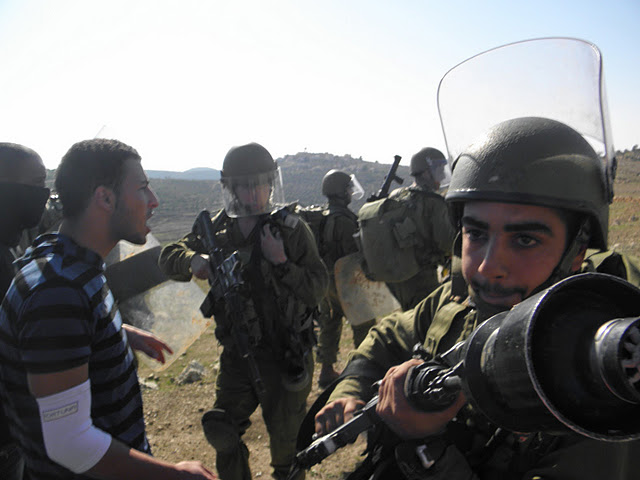-
Israeli forces enter Ni’lin with tear gas and ammunition
by Jenna Bereld 3 December 2011 | International Solidarity Movement, West Bank After Friday’s peaceful demonstration in Ni’lin on 2 December, the Israeli military occupation forces entered the village and started following some of the demonstrators. When they caught up, they started to fire rubber coated steel bullets and live ammunition. It’s nothing unusual that […]
-
A day with fugitives in Gaza’s fishing waters
by Lydia de Leeuw 2 December 2011 | A Second Glance It’s 6.30am when Ahmad’s fishing boat leaves the Gaza City fishing port. Together with his three nephews and a friend, he will stay at sea for 48 hours, trying to catch as many fish as possible within the Israeli-imposed 3 nautical-mile limit.[1] Ahmad (Abu […]
-
Associated Press journalist arrested in Nabi Saleh
by Aida Gerard 2 December 2011 | International Solidarity Movement, West Bank One Palestinian journalist from the Associated Press was arrested while the Occupation Forces invaded the village of An Nabi Saleh. Before the beginning of Friday’s traditional protest in An Nabi Saleh, the Occupation Forces placed soldiers at the entrance gate to the village […]
Action Alert An Nabi Saleh Apartheid Wall Arrests BDS Bethlehem Bil'in Cast Lead Demonstration Denial of Entry Ethnic Cleansing Farmers Gaza Global Actions Hebron House Demolition International law Israeli Army Jerusalem Live Ammunition Nablus Ni'lin Prisoner Ramallah Rubber-coated steel bullets Settlement Settlers Settler violence Tear-Gas Canister Video


